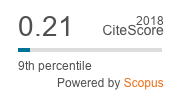Impact of Early Relational Trauma on Psychic Processes
Implications for Treatment of vulnerable Children and Families*
DOI :
https://doi.org/10.1590/0102.3772e39301.enMots-clés :
Early relational trauma, Attachment, Intersubjectivity, Play model, Mediation, MentalizationRésumé
Numerous works and clinical research conducted in various institutions have cast fresh light on the notion of trauma and have contributed to the emergence of the concept of early relational trauma. Early relational trauma is a form of trauma rendered complex by the multiplicity of its sources and its modes of expression. Its main features are often attachment and acting-out disturbances. In families where such trauma occurs, links could sometimes be perverted and form a narcissistic configuration. This mode of functioning, organized around negativity, impacts the plurality of psychic processes and interferes with the treatment approaches of multidisciplinary teams. In order to promote a multifocal approach to care tailored to differences in situations, educational and socio-judicial practitioners.
Téléchargements
Références
Allen, J. G. (2013). Mentalizing in the development and treatment of attachment trauma. Karnac Books.
Allen, J. G., Fonagy, P., Bateman, A. W. (2008). Mentalizing in clinical practice. American Psychiatric Publishing, Inc.
Aulagnier P. (1975) La violence de l’interprétation, du pictogramme à l’énoncé. Presses Universitaires de France
Bokanowski T. (2002). Traumatisme, traumatique, trauma [Traumatism, traumatic, trauma] Revue française de psychanalyse, 66(3), 745-757. https://doi-org.ezproxy.normandie-univ.fr/10.3917/rfp.663.0745
Chouvier, B. (2011). La médiation dans le champ psychopathologique [Mediation in the psychopathological field]. In A. Brun (Ed.), Les médiations thérapeutiques (pp. 37-47). Erès. https://doi.org/10.3917/lcp.141.0032
De Singly, F. (1991). La famille, l’état des savoirs. La Découverte. Domon-Archambault V. & Terradas M. M. (2015). Les interventions fondées sur la notion de mentalisation auprès des enfants en situation d’hébergement. Revue québécoise de psychologie, 36(2), 1-34. https://www.researchgate.net/publication/279943665
Drieu, D. (2020). A abordagem metapsicologica da psichanalise grupal [The metapsychological approach to psychoanalytical group therapy]. In D. Matos Do Amparo, R. Arouca Morais, & K. Tarouquella (Eds.), Adolescencia psicoterapias e mediaçoes terapeuticas na clinica dos extremos (pp. 121-133). Technopolitik.
Drieu, D., & Marty, F. (2005). Figures de filiation traumatique [Figures of traumatic filiation]. Dialogue, 168, 5-14. https://doi.org/10.3917/dia.168.0005
Drieu, D., Sarabian, S., & Plagès, M. (2012). Les adolescents vulnérables et les alternatives thérapeutiques en protection de l’enfance [Vulnerable adolescents and alternative therapies in the context of child protection]. L'évolution psychiatrique, 77(2), 265-277.https://doi.org/10.1016/j.evopsy.2012.01.003
Ferenczi, S. (1932). Confusion des langues entre les adultes et l’enfant : le langage de la tendresse et de la passion [Confusion of tongues between adults and the child: The language of tenderness and of passion]. Œuvres complètes 1927-1933 (pp. 125-135). Payot.
Fonagy, P., & Target, M. (1996). Playing with reality: I. Theory of mind and the normal development of psychic reality. The International Journal of Psycho-Analysis, 77(2), 217-233. PMID: 8771375.
Fonagy, P., Gergely, G., Jurist, E. L., & Target, M. (2002).A ffect regulation, mentalization, and the development of the self. Other Press.
Ford, J. D., Fraleigh, L. A., & Connor, D. F. (2009). Child abuse and aggression among seriously emotionally disturbed children. Journal of Clinical Child & Adolescent Psychology, 39(1), 25-34.https://doi.org/10.1080/15374410903401104
Freud, S. (2002). Lettre à Wilhelm Fliess [Letter to Wilhelm Fliess]. Libres cahiers pour la psychanalyse, 2(6),1897, 11-14. https://doi.org/10.3917/lcpp.006.0011
Guyotat, J. (2005). Traumatisme et lien de filiation [Trauma and filiation ties]. Dialogue, 168, 15-24.https://doi-org.ezproxy.normandie-univ.fr/10.3917/dia.168.0015
Kaës, R. (1989). Violence d’état et psychanalyse [State violence and psychoanalysis]. Dunod.
Kaës, R. (2015). L’extension de la psychanalyse. Paris, Dunod
Leroux, J., & Terradas, M. M. (2013). Fonction réflexive parentale et Trouble réactionnel de l’attachement : perspectives théoriques [Parental reflective functioning and reactive attachment disorder]. La psychiatrie de l’enfant, 56(1), 293-315. https://doi.org/10.3917/psye.561.0293
Nguyen, P. (2021). Le couple dans la famille, approche corporelle, Thèse de doctorat de psychologie Clinique et Psychanalyse, dir. P Robert. Université de Paris, 512 p. https://www.theses.fr/s177466
Pine, F. (1986). On the development of the “borderline-child-to-be”. American Journal of Orthopsychiatry, Vol. 56. Issue 3, 450-457 https://doi.org/10.1111/j.1939-0025.1986.tb03476.x
Pinel, J.-P. (2016). Agirs violents, pathologies des limites et attaques hypermodernes des cadres institués [Violent acting-out, ego boundary disturbances and hypermodern attacks on instituted frameworks]. In D. Drieu & J.-P. Pinel (Eds.), Violence et institutions (pp. 37-66), Dunod.
Racamier, P. (1995). À partir de la séduction narcissique [Beginning with narcissistic seduction]. In P. Racamier, L'inceste et l'incestuel (pp. 3-15). Dunod.
Roussillon, R. (2012). Agonie, clivage et symbolisation [Agony, cleavage and symbolization]. PUF, Collection Quadrige.
Slade, A. (2005). Parental reflective functioning: An introduction. Attachment & Human Development, 7, 269-281.
Terradas, M. M., Domon-Archambault, V., & Drieu, D. (2020). Clinical assessment of prementalizing modes of psychic functioning in children and their parents in the context of trauma. Journal of Infant, Child, and Adolescent Psychotherapy, 19(1), 25 - 41.https://doi.org/10.1080/15289168.2020.1717186
Winnicott, D.W. (1953) Transitional Object and Transitional Phenomena. International Journal of Psychoanalysis, 34, pp. 89-97. DOI: https://10.1093/med:psych/9780190271350.001.0001
Winnicott, D. W. (1971). Winnicott, Playing and reality. Routledge.
Winnicott, D. W. (1974). Fear of breakdown. International Review of Psychoanalysis, 1, 103-107. https://doi.org/10.1093/med:psych/9780190271381.003.0086
Téléchargements
Publié-e
Comment citer
Numéro
Rubrique
Licence
© Teresa Rebelo, Miguel M. Terradas, Didier Drieu, Sophie Buisson, Jalal Jerrar-Oulidi, Maeva Moreau 2023

Cette œuvre est sous licence Creative Commons Attribution 4.0 International.



